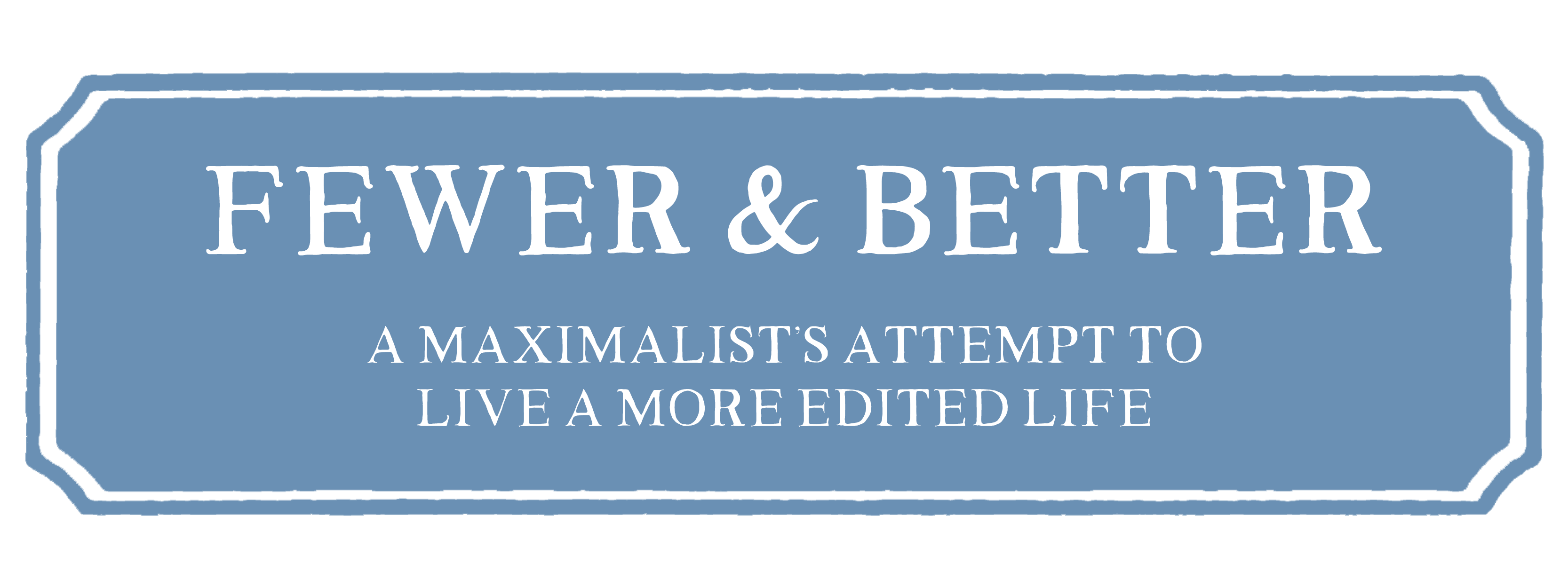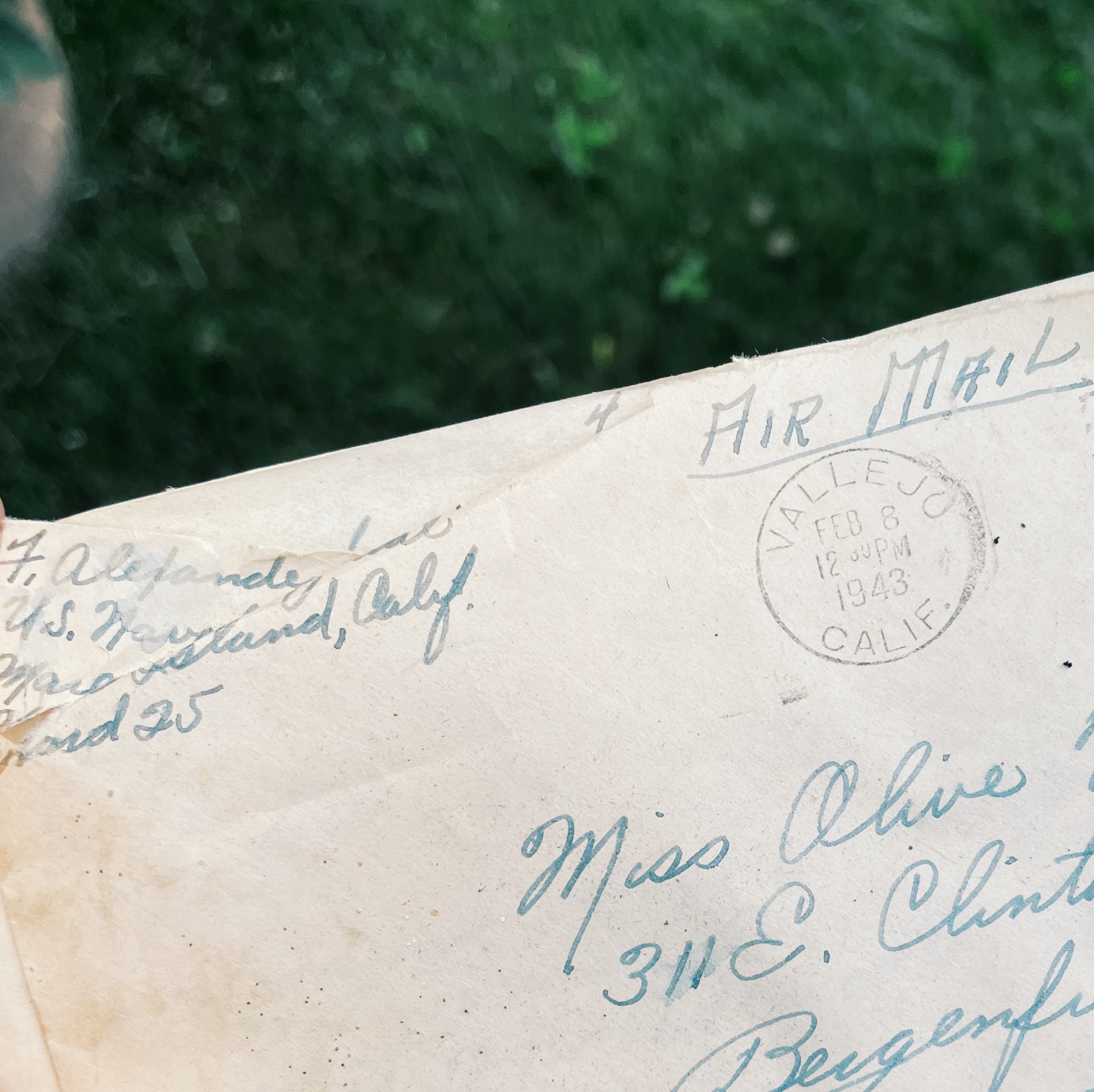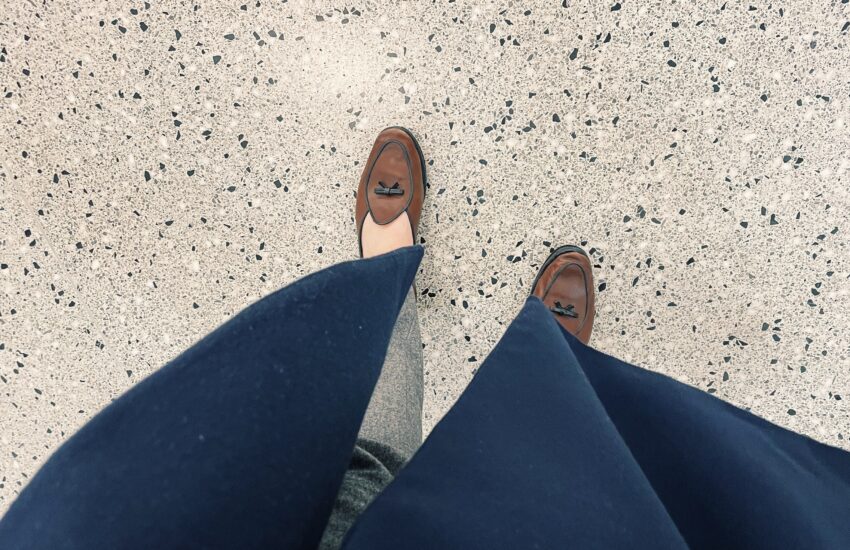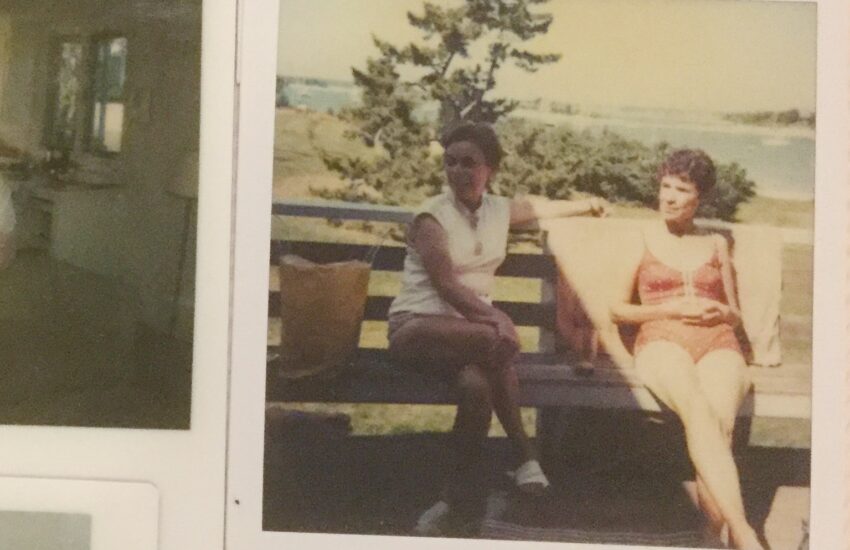Losing Family Heirlooms
I don’t often get too personal here, but it’s been a difficult few weeks.
My maternal grandmother died at the age of 98 the week before COVID became an international emergency. She had lived in Florida for the last ten years of her life and, because she had no nearby family, she had arranged for her belongings to be sorted through by local friends. She left clear, written instructions on what to dispose of and what to send to me.
Unfortunately, the movers to whom I provided instructions–albeit remotely–didn’t listen. Not only did they pack a good deal of things that were to be donated, they also didn’t pack anything–they shoved the beautiful furniture my mother had bought my grandparents into a storage pod without any protection whatsoever. They didn’t take proper care to clean and seal the pod, as I asked (and paid) them to do. So when I finally had the pod delivered to our house, three years and a bit after she died, I opened it to find that just about everything I’d stored for this time was destroyed.
It has been difficult. I’m in the process of filing claims for insurance–because while the furniture had much more sentimental than monetary value, it wasn’t nothing–and, more importantly, I’m in the process of grieving again.
My little one never met my grandma, but she wanted to pass this furniture to her great-grandchild. I had stored it for that reason. I wanted the next generation to have something from her. And while, in theory, the pieces could be cleaned and refinished at some point, it is too much for us to deal with right now. And so we donated them. But we were also left to deal with a number of things she took care to avoid us dealing with–the disposal of miscellaneous belongings that had no meaning to her or to us, such as a microwave, a fridge, etc.–all of which ended up with us anyway. All of which damaged and destroyed that which meant something to her.
It’s a bitter pill to swallow. I had trusted that the care that she took, and that I took, to protect what she wanted to save would be enough, but it wasn’t.
Thankfully, not everything was destroyed. Thankfully, the three things that meant the absolute most to us–a mirror that belonged to my great-grandparents, needlework that my grandmother made, and the letters my grandpa wrote to my grandma during World War II–survived. But it’s so sad that out of a nearly century-long life, that’s all that’s left.
All this to say–this was upsetting. I place so much importance on physical possessions–not for their monetary value but on the meaning they have and carry, the memories they hold. But things don’t last forever. I’m trying to place less importance on the physical and more, conversely, on the ephemeral–on the very individual things that can never, ever be replaced.
How do you handle losing family possessions? How do you get past that sickening feeling of loss when you think about what you no longer have? I’m trying to realize that each belonging in our life is there for a specific time and for a specific purpose. I’m also hopeful that some of the pieces will go to those who will be able to refinish and appreciate them in their life. It’s part of the process. And the things that are unique and personal in their meaning–the mirror, needlework, and letters–are still with us, and still ours. And, at the end of the day, that’s what matters.




I am so sad for what you are going through. I too, feel a very deep connection to my family history through possessions. After my dad died and my mom was in the very difficult process of simultaneously downsizing and moving, my brother got rid of things that I specifically asked to save for me. A small part of that bitterness remains but all I can say is that it takes time (many years) and the ability to take the high road and work hard to not let it destroy relationships. I treasure what I do have because it is a tangible link to the past. I sometimes think of those items that were given away, hoping, as you do, that they are being appreciated by someone else.
Thank you for sharing your experience, Esther, and I’m sorry you’ve gone through this too. I am glad that at least none of the bitterness I feel has to do with anyone specifically related to me–just faceless, nameless movers and storage people!
Oh no, that’s such a horrible thing to happen to you. Is there any way to initiate a cause of action against the movers?
I am working on researching that now–hopefully there is. It’s so appalling.
I’m so sorry this has happened to you. Years ago a roommate stole from the rest of my housemates while we were out of town. I went a few days not knowing what I owned (if anything) and came back to find that she’d stolen a fair amount of sentimental items from my childhood. Since I moved across the country for school and still live far from home, I have very few items from my years before college. It was devastating, but what has helped me over the years is being intentional about appreciating the few things I was able to recover. I’m sad that I can’t, for instance, show my nephew the baseball bat my dad bought me at my first game, but the reason that bat is so important is because of the hilarious story behind the object. I can always share the memory even if I no longer have the item. That loss is also motivation for me to take him and his sister to a Cardinals game so they can get their own souvenirs to share with the next generation.
I’ve learned at the end of the day, material things will always come and go, often in situations beyond our control (no matter how hard we try). After a certain point I came to accept that I can’t change what happened and it was hurting me more than anything to keep dwelling on stuff I’ll never get back (which takes time!) .
I am so sorry for your loss! That is so awful. I love your way of reframing the loss, however, and I hope I can adopt that too!
Sadly, I don’t think there is much to do except handle the situation, the loss, with as much grace as one can muster. I too am currently dealing with/working through something very similar in my own world. The details are different, but the frustration, annoyance, and grief are much as you describe. As my late maternal grandfather occasionally used to say, you cannot count on anyone [even when written instructions and payment are part of the picture].
I hope you can resolve things. At least in part.
Kind Regards,
Heinz-Ulrich
I am so sorry you are working through a similar situation! I too wish you a graceful resolution.
Sarah
I’m sorry for what you’re going through Sarah; another although unintended Covid casualty. In my experience at almost age 76 the thing that makes the most difference for loss is time; and the lessening comes after the feelings that each of us deal with in our own way. And as you say being grateful for what you do have. Pursuing legal options if successful will bring remuneration and perhaps some satisfaction but likely not at all what the original items would have meant. In my work with my families’ histories the things I’ve found I valued most are photos. When my parents passed away they are also the only things I asked for. They bring back memories.
Thank you for your wise words, Randy! It’s always a pleasure to hear from you.
I’ve handled it roughly. When my father died of Covid in 2021 I expected to go through a bit of weirdness because he had three daughters and a wife. His wife was not my mother and so many things were discarded because of a lack of personal connection on her part which I understand. But the true family heirlooms, things from my great-grandfather all went to my older half-sister and these things I never expect to see again. Ironically there were three things and now they’re gone. I don’t have a strong relationship with this sister and I have been very bitter about it BUT I’ve come to realize that even though she has the things, I have the strongest memories of the people that she’s trying to find a connection to now, after everyone is gone.
I’m sorry you’re going through this. It hurts. The best equivalent I’ve found to describe the grieving process is this:
Your heart is a box. When a loved one passes it creates a sort of “button” in that box. Your grief is a giant ball at first, constantly hitting that button in the box but as time goes on the ball of grief becomes smaller, directly hitting the button less and less. But when it does hit, it can take your breath away.
I know this sounds stupid but I feel as if I was woefully unprepared for the deaths of family members. Or just death in general. Regardless of who they were in my life. Now I have a basement full of stuff that I can’t part with because if I do they pass all over again. I know this is a problem and one day hopefully I’ll be able to heal from everyone enough to be able to part with things but for now it’s comforting to hold on to things that were important to them.
The best I can do now is pass on my love and regard for my forebears to my children for them to hang on to the most important things. Hang in there. <3
I am so sorry for your loss, hrplo, and for what you have gone through too. It is hard and I do agree with you in regards to things–they feel like the anchors I have left to these people I loved, and when they are gone, so are they. It’s one of the reasons I wear and cherish so many of the pieces I’ve inherited–I love having that daily connection to people who were important to me.
And thank you for the metaphor–I too have found that so. Sending love to you–hang in there, too!
I’m so sorry you’re dealing with this. It’s so hard to lose a person and then not have things that were meaningful to them on top of that. A few pieces of jewelry that belonged to my paternal grandmother were lost and/or destroyed in a move 15 years ago. I still think about those things and wish I had them. I’m focusing on what items I do have and of course the memories I have of being with her. Thinking of you as you work to resolve all the insurance issues and try to find peace <3
Thank you so much, Sara! I’m so sorry that you went through this as well <3